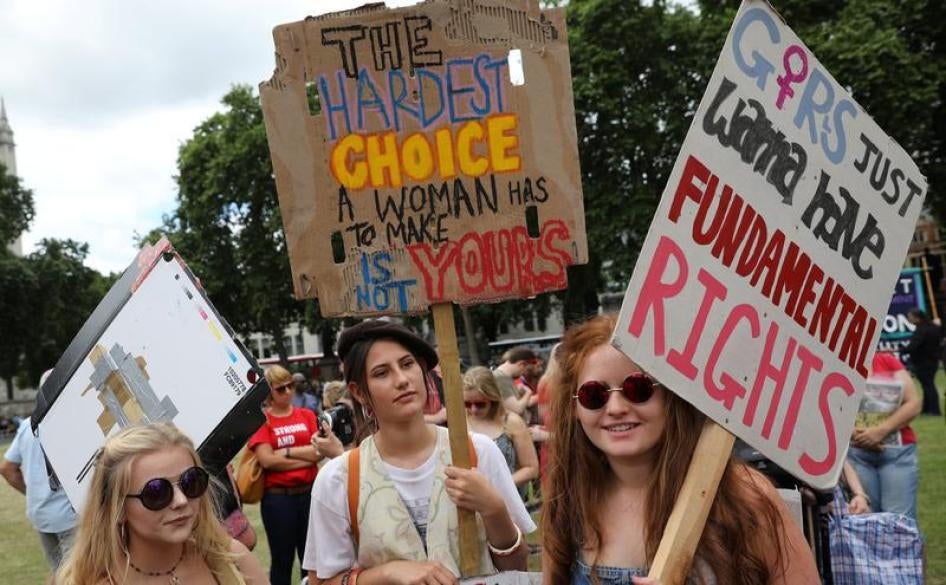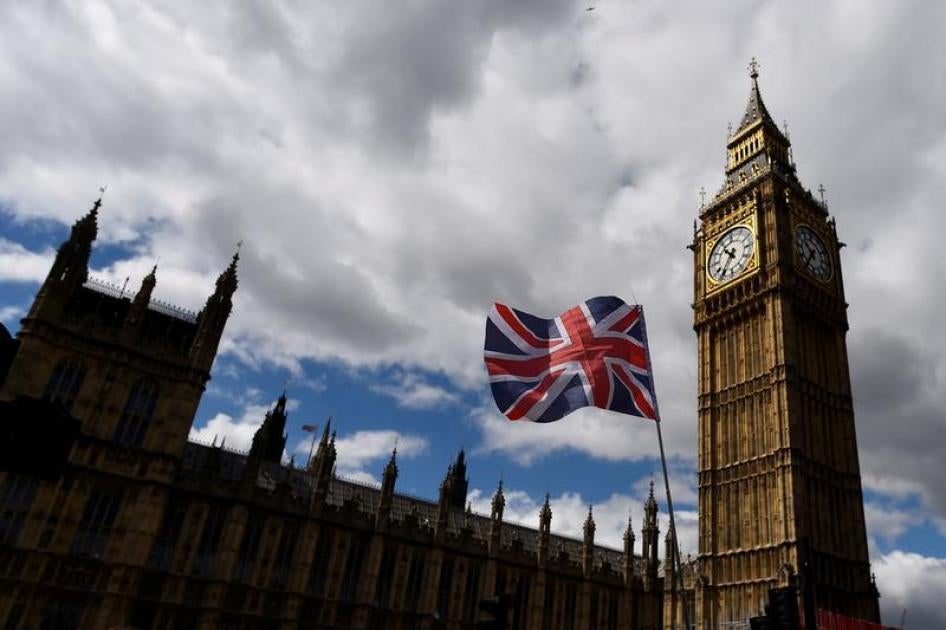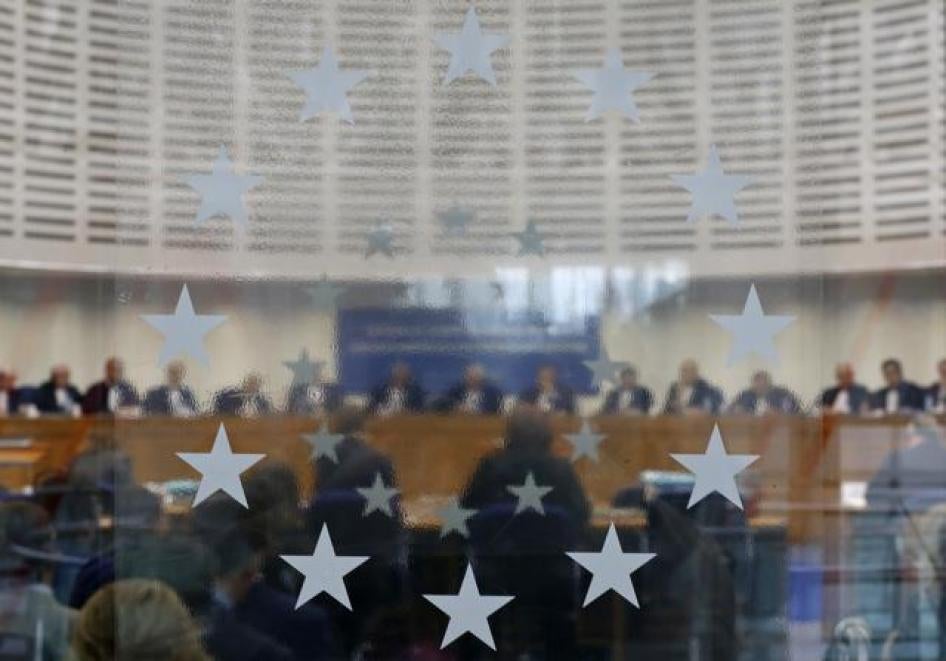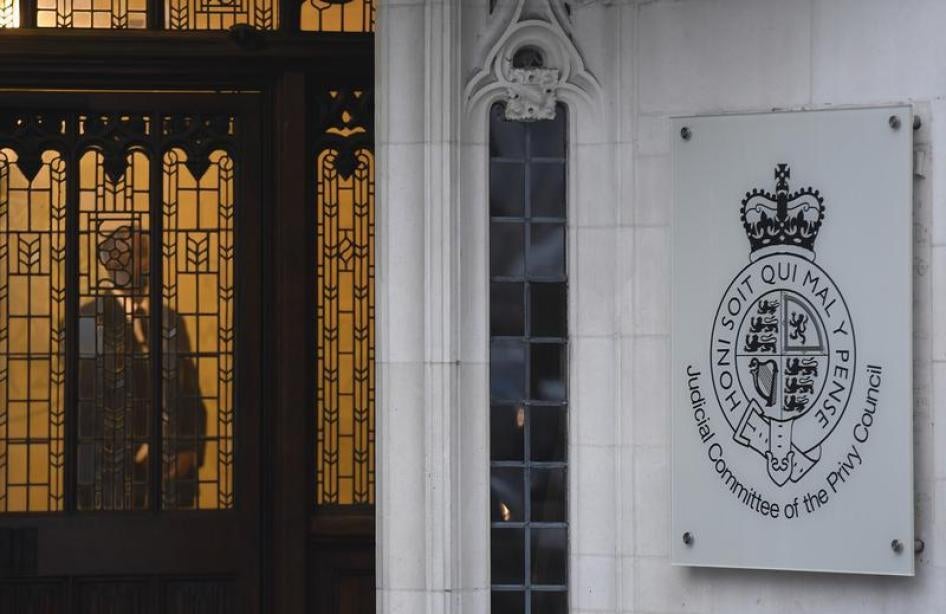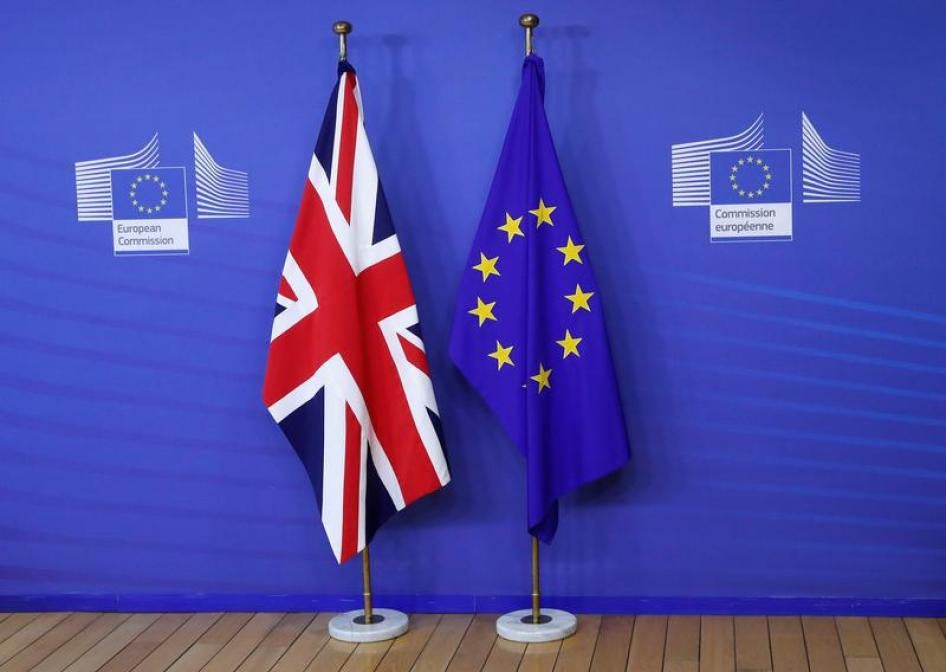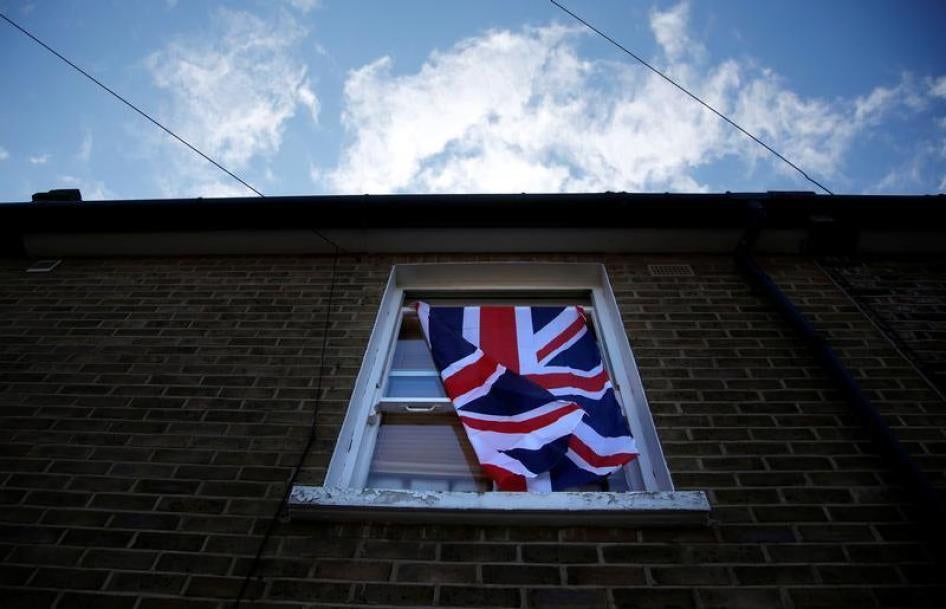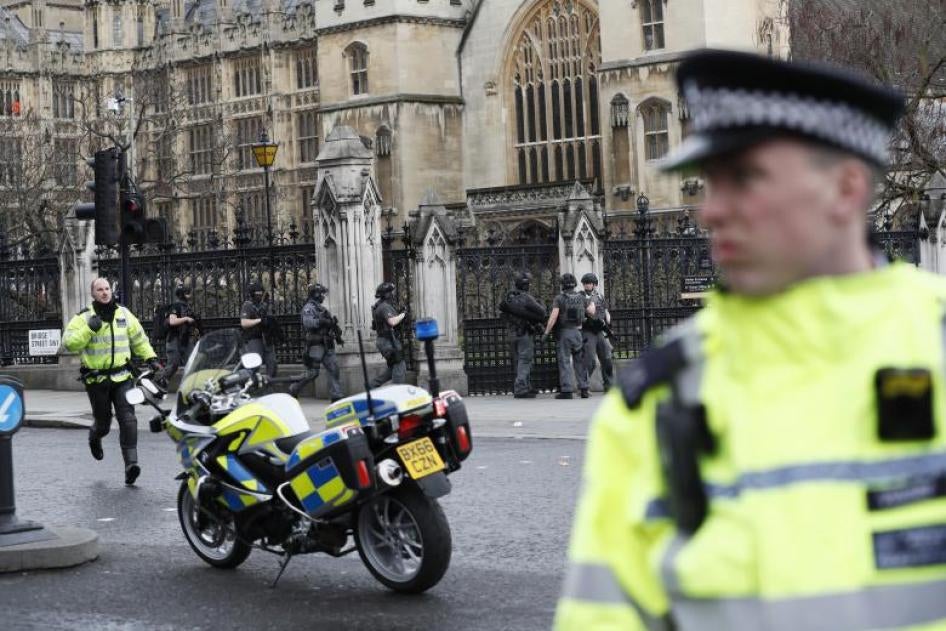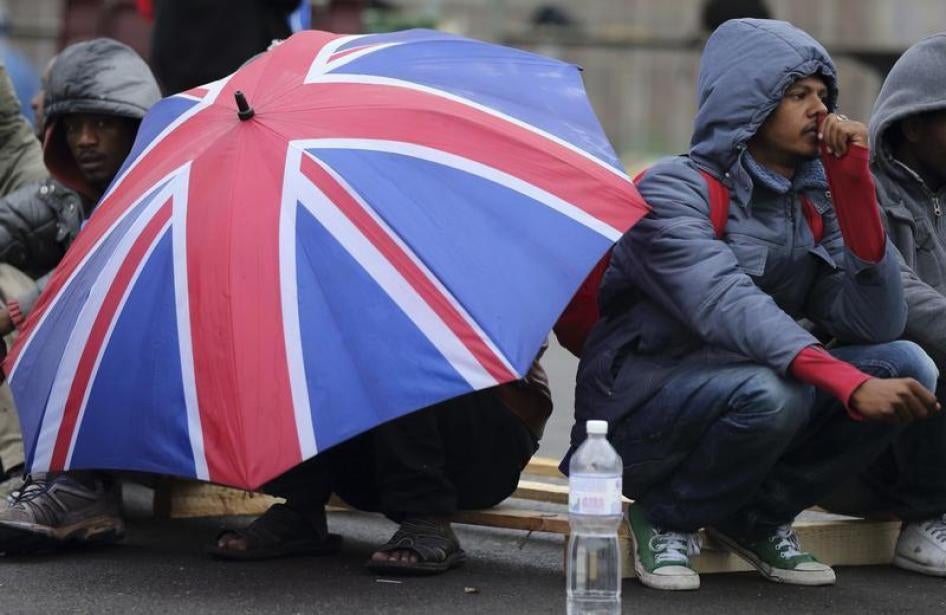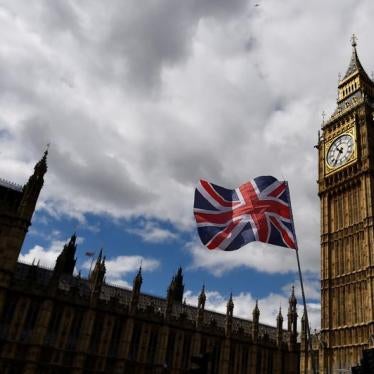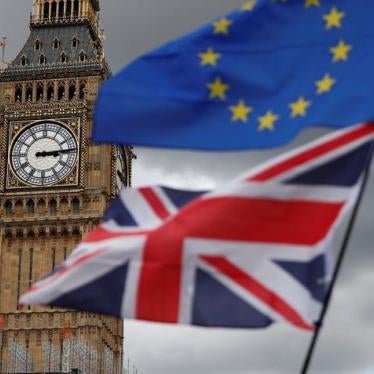For the last twenty years in the UK, some politicians and sections of the media have led a relentless attack on human rights, grossly misrepresenting the UK Human Rights Act as a charter for criminals and a barrier to common sense. In the face of this assault, supporters of human rights have not always been effective at tackling these lies and misconceptions, or in providing clear explanations of what human rights are and how they benefit everyone living in the UK.
The Brexit vote provides added urgency to this task. In the Q & A below, we address some key questions that are often asked about human rights in the UK. It outlines how human rights consist of basic protections and freedoms to which everyone should be entitled. And it demonstrates that far from undermining the rights of ordinary people as some critics claim, the UK’s human rights framework has helped protect and improve their rights. Human rights deserve to be celebrated, not denigrated.
Q: What are human rights?
The idea that every human being – whoever they are and wherever they live - should be treated with fairness and dignity. Human rights consist of some basic protections and freedoms, a minimum threshold of decent treatment to which everyone should be entitled and below which nobody should be allowed to fall - because to do so would be inhumane and degrading. For example, nobody should be enslaved or tortured, imprisoned without a fair trial, discriminated against because of their gender, ethnicity, sexuality or disability, or persecuted for their political views or religious beliefs. Similarly, everyone should be free to express themselves and protest peacefully (but not to incite hatred or violence), to be treated equally before the law, and able to access essential services like education and health, and have an adequate standard of living. These and other human rights are set out in the landmark Universal Declaration of Human Rights agreed by governments in 1948, in subsequent international and regional human rights agreements, and in the constitutions and laws of many countries around the world, including the UK.
Of course, countries vary greatly in how well they protect these rights in practice. In authoritarian or war-torn countries these rights are routinely violated or denied, whereas in established liberal democracies, human rights are often safeguarded more effectively. Groups like Human Rights Watch work to expose the denial and violation of human rights in many different countries around the world, and we press for human rights to be better protected and upheld everywhere.
Q: Why is this relevant to the UK? - Aren’t human rights already respected here?
As a mature democracy with a well-developed legal system, and especially because of the Human Rights Act (HRA) passed in 1998, the UK does a reasonable job in protecting human rights at home. Most people living in the UK today have most of their core human rights respected most of the time. But there are still some very serious human rights issues affecting people living in the UK. This includes victims of domestic violence who have been let down by the criminal justice system; elderly people abused in care homes; workers exploited by unscrupulous employers; LGBT people, migrants and people with disabilities who have been discriminated against; soldiers who die while on duty due to inadequate equipment; people who live in housing that is unsafe; and the mentally ill who have been mistreated in psychiatric hospitals. Where these abuses have been uncovered and publicised, it has often proved possible to right the wrong and secure justice through the courts.
However, there is no case for complacency. UK citizens should always be alert to government policies that might threaten human rights. For example, successive UK governments - like governments elsewhere - have introduced laws and policies to make them look tough in dealing with crime and terrorism. But sometimes laws go too far, and undermine human rights protections. Governments can also easily overlook or ignore the impact of their policies on vulnerable groups like children in care, the elderly, the disabled, and migrants and asylum seekers.
Q: What is the UK Human Rights Act (HRA)?
The UK Human Rights Act was approved by Parliament in 1998, with cross-party support, and became law in 2000. The Act effectively incorporates into domestic law the European Convention on Human Rights (ECHR) – an agreement designed, as its name suggests, to strengthen human rights across the whole of Europe. The purpose of the Act was to allow people to secure their rights at home and challenge violations of those rights in UK courts. The ECHR was largely drafted by British lawyers and was championed by Winston Churchill in the early 1950s. The UK was one of the first states to ratify it, in 1951. The rights in the ECHR are ones long valued in the UK, including the prohibition of slavery and torture, the presumption of innocence, freedom of speech, and the right to a fair trial.
Before the Human Rights Act, if UK citizens felt that the government was not respecting their rights, they had to take cases directly to the European Court of Human Rights in Strasbourg, a process that could take years. This is one clear benefit of the Human Rights Act – it has made access to justice more accessible. A second advantage of the Act is that it requires UK authorities – such as the police, health service, prisons and care homes - to respect people’s rights when delivering services and interacting with the public.
The Human Rights Act (HRA) has already brought many specific benefits to people living in the UK. For example, it has been used to stop elderly couples from being separated and placed in different residential care homes, to secure accommodation for the survivors of domestic violence, to tackle discrimination experienced by homeless people, to prevent degrading practices in psychiatric hospitals, to tackle discrimination experienced by LGBT people and by people with disabilities, to name but a few.
It has also greatly strengthened the rights of victims. For example, the HRA was used by families of the Hillsborough football disaster to force a proper public inquiry to thoroughly investigate the tragedy and the reasons for it, and to hold those responsible to account. Thanks to the perseverance of the families and the tools the HRA gave them, six people are now set to be charged with manslaughter over the tragedy, ending a 28-year wait for justice.
Q: Why do some people want the HRA replaced by a British Bill of Rights?
For many years, leading figures in the Conservative Party including the current Prime Minister, Theresa May, have wanted to replace the Human Rights Act. While the Conservatives’ 2017 election manifesto pledged not to scrap the HRA, it also committed to “consider our human rights legal framework” once Brexit is complete. The party, now deprived of its parliamentary majority following the June 2017 general election, made no reference to the HRA in the Queen’s speech, which sets out its legislative programme for the coming parliamentary session. However, while postponed for now, many in the Conservative Party would clearly like to scrap the Human Rights Act in the future.
In theory, their proposed new British Bill of Rights could provide extra human rights, such as the right to education or trial by jury, or better protection of existing rights by giving the UK Supreme Court stronger powers to enforce them. But most people calling for such a Bill seem to want to restrict or qualify rights protections, not increase them. This suggests they misunderstand or deny precisely what defines human rights: that they apply to all.
Some critics also argue that the HRA is somehow alien to UK society and culture, and has made it harder to deal with problems of crime, immigration, and terrorism. They suggest the HRA strengthens the power of judges - especially those sitting in Strasbourg - at the expense of elected politicians, and that it forces British judges to apply rulings they might not agree with made by the European Court of Human Rights.
Much of this criticism of the HRA is ill-informed. Firstly, the HRA incorporates into UK law the European Convention on Human Rights (ECHR), a document drafted with very extensive UK involvement and heavily influenced by UK legal traditions. The convention also reflects other global standards that the UK helped to shape, notably the UN Declaration of Human Rights, as well as international treaties on human rights that the UK and most other countries have signed up to.
Secondly, despite claims of European judicial overreach, in many respects the HRA is quite a conservative tool. While it obliges the UK courts to “take into account” judgements of the European Court, the UK courts are not bound by them, and are free to interpret the ECHR as they see fit. Moreover, if they conclude there is a conflict (between a proposed law and the UK’s human rights obligations) the courts cannot strike the law down but only note that “incompatibility” to Parliament. It is for the UK’s Parliament to decide whether and how to change the law.
Thirdly, UK lawyers and UK judges have worked for and served on the European Court of Human Rights, alongside their colleagues from other countries. Three of the Court’s thirteen Presidents since 1959 have been from the UK.
If the Human Rights Act is replaced by a British Bill of Rights, citizens in the UK would still be able, as a last resort, to take cases to the European Court of Human Rights - unless the UK government was also proposing to withdraw from the European Convention on Human Rights. Withdrawal from the ECHR and the Council of Europe was previously proposed by Prime Minister Theresa May when she was Home Secretary, as well as other senior Conservative politicians. But the Conservatives’ 2017 election manifesto put this proposal on hold, at least for the lifetime of this Parliament. For reasons set out below, withdrawal from the ECHR and Council of Europe at some future date would be a disastrous move.
Q: Why is the European Convention on Human Rights (ECHR) so important?
Despite what some UK politicians and media inaccurately claim, the European Convention on Human Rights (ECHR) – an international treaty that protects rights across Europe – does not come from the European Union. Instead, its powers come from an entirely separate European institution, the Council of Europe.
The UK played a key role in the creation of the Council of Europe in the early post-war years. The rationale for this European-wide organisation - and its centrepiece the European Convention on Human Rights and the accompanying European Court of Human Rights - was to set and enforce high standards on rights across Europe. After the horrific human rights abuses in Europe of World War II, these institutions were seen as a way to help safeguard essential liberties for all European citizens and secure peace and justice across the continent. For more than sixty years, they have proved their worth, protecting and promoting rights for people across 47 European countries, including the UK.
The cases the ECHR has ruled on have helped to end torture in custody, get equal treatment for women and LGBT people, end cruel punishment in schools and protect media freedom from government interference.
Moreover, contrary to what the critics claim, the European Court only rules against UK courts in a tiny number of cases each year. For example, in 2016 the Court dealt with 399 applications concerning the UK. 360 were declared inadmissible or struck off. The Court delivered only 14 judgements, in respect of the remaining 39 applications. And of these, the Court ruled that the UK had committed violations in just 7 cases.
To withdraw from the Convention and Council of Europe – as some propose - would be a huge step backwards, welcomed by the region’s autocrats and authoritarians. It would be a particular blow to people suffering human rights violations in countries like Russia, Turkey, Azerbaijan or Ukraine. The European Court of Human Rights has played an important role in protecting them from violence or persecution by their own governments. For the UK to withdraw from the ECHR would also seriously diminish its standing internationally and undermine its efforts to promote human rights protection around the world. Only one country has ever withdrawn from the Convention – Greece in 1970, when under military rule. And only one country in Europe sits outside the Convention – Belarus, a brutal and authoritarian state.
Q: What will Brexit mean for the human rights of people in UK?
UK citizens enjoy many human rights protections that derive from EU law, including rulings of the EU’s Court of Justice. This is particularly the case in respect of employment rights. For example, the EU’s Working Time Directive, which set a maximum 48-hour working week, has reduced the number of UK employees working excessively long hours. Although UK employees can opt out of the directive, the overall number of people working more than 48 hours a week has fallen by around 700,000 since 1998. This EU Directive also gave UK workers a statutory right to paid holiday for the first time.
Other EU laws have brought benefits to working parents and carers. The EU Pregnant Workers Directive gives women in the UK paid time off for anti-natal appointments, and ensures that employers assess risks and adjust working conditions for pregnant women. Similarly, the EU’s Parental Leave Directive gives working parents the right to take unpaid leave to look after a child, increased from 13 to 18 weeks per child in the UK in 2013.
Q: What is the EU Charter of Fundamental Rights?
This is a single document that brings together all the basic rights protected in the EU and under EU law. It came into legal force across the EU in 2009, and applies to EU governments when they make decisions that relate to EU law and to EU institutions. It is not binding on EU member states when they make decisions that relate to areas of domestic law not covered by EU law.
The Charter includes rights not in the 1950 European Convention on Human Rights, such as the right to healthcare, strong protection on equality and non-discrimination, and the right to protection of personal data. Tom Watson and David Davis, then backbench MPs, used the Charter to challenge UK laws requiring phone and internet companies to keep records of communications by individuals. The EU’s Court said that ‘general and indiscriminate’ retention of data was against the Charter’s protection of the rights to privacy and protection of personal data.
EU law has also strengthened rights on equal pay for men and women, in particular for part-time workers, the majority of whom are women, for example by helping them access occupational pension schemes.
EU law has also been vital in securing equality and tackling discrimination in the UK. It was EU law that led to the first laws in the UK prohibiting discrimination on the grounds of age, religion and sexual orientation.
Given how EU law has strengthened the rights of UK workers, there are real concerns that such benefits and protections will be removed or weakened after Brexit. The UK Parliament is currently considering an EU Withdrawal Bill proposed by the government that will transfer all existing EU law into UK law when the UK leaves the European Union, with the exception of the EU Charter on Fundamental Rights which the background documents to the bill indicate will not be transferred into UK law. While the government has promised to retain employment and anti-discrimination protections that currently derive from EU law, the same Bill would give it the power to change these laws post Brexit without full parliamentary scrutiny. Moreover, an analysis from the UK’s Brexit Ministry has said that the loss of some equality rights is a “natural consequence” of Brexit.
This is an alarming development and Parliament should ensure that all existing rights protections will be upheld in full.
Q: What will Brexit mean for the rights of EU nationals in the UK and UK nationals in the EU?
An estimated 3.2 million EU citizens currently live in the UK, while 1 million UK citizens live in other EU countries. These people are understandably anxious to know whether their current residence, employment and other rights will be maintained after Brexit. Some EU nationals are also fearful in respect of their physical safety, given the spike in hate crimes targeting EU citizens and others that followed the Brexit vote.
The Conservatives’ 2017 election manifesto promised to “secure the entitlements of EU nationals in Britain and British nationals in the EU”, but provided no further detail on what this meant. Moreover, the government rejected amendments to the Brexit Bill in March 2017 that would have guaranteed the rights of EU citizens.
In a meeting with EU leaders in Brussels in June, Theresa May then made a more specific offer, proposing that those EU citizens who have lived in the UK for five years would be given “settled status” and be eligible to the same healthcare, pensions, benefits and education rights as British nationals. But this proposal still begs a large number of questions, not least for those who have lived in the UK for less than five years but have family and other relationships here. The EU Withdrawal Bill also says that the rights of EU citizens could be amended post-Brexit without full parliamentary scrutiny.
It is quite wrong that the status of EU nationals in the UK should be used by the UK government as a bargaining chip in negotiations with the EU on other issues, for example trade access. The existing rights of EU nationals should be upheld in full, and the EU should provide a similar commitment for UK nationals living in other EU states.
Q: Do human rights laws stop Britain from tackling terrorism effectively?
No. Security and human rights are not mutually exclusive. On the contrary, respect for human rights and the rule of law are vital if efforts to counter terrorism and violent extremism are to be effective. Human Rights Watch works on counterterrorism issues in many different countries around the world, and we have documented how counter-productive it can be when security forces take the law into their own hands and erode basic freedoms. Blunt approaches like this are not only abusive and morally wrong, but they simply do not work. This is because overly broad counterterrorism powers can alienate the very communities whose trust and cooperation is needed to identify those who might become violent and plan terrorist acts. The UK already has a raft of counterterrorism powers, and Human Rights Watch has seen no evidence that these powers are insufficient to meet the serious threat the country faces today.
So Human Rights Watch was very concerned by Theresa May’s claim during the 2017 election that human rights laws are an obstacle to dealing with terrorism and could be scrapped. As Home Secretary for six years and now Prime Minister, May has had a major say in efforts made by the UK over this period to address terrorism, including the legal and policy framework, but also the question of police resources and capacity. She has provided no evidence to support her claim that human rights hinder the fight against terrorism. Tellingly, the Independent Reviewer of Terrorism Legislation, Max Hill QC, appears to disagree with the Prime Minister. Speaking in June 2017 after the attacks in London and Manchester, Mr Hill said: “We do have the appropriate laws in place, and the police and security services, and those whose job it is to keep us safe, do have the powers at their disposal.”
Q: But don’t human rights laws stop us from deporting foreign terrorists and serious criminals?
No. The UK has legal powers to deport foreigners convicted of a serious criminal offence. A judge can order deportation during the sentencing process and the deportations occur after the person has served their sentence in the UK. Each year, hundreds of foreign criminals are legally deported from the UK in this way.
Human rights law only becomes relevant (with the courts intervening to block deportation) in three specific circumstances. Firstly, when the person to be deported would face a real risk of death, torture or ill-treatment in the country of destination. Secondly, if the person is accused of a crime in the receiving country but has no prospect of a fair trial there. The right to a fair trial is a long-established principle of the UK’s legal system. Thirdly, if the person to be deported and their family members in UK would have their right to a family life severely compromised, such as when the person’s immediate family would be unable to accompany them.
In a very limited number of cases, UK courts may decide to block deportation on these grounds using human rights law. But the number of deportations blocked on this basis each year are small. Courts always carefully consider their decisions, weighing the potential harm to both the individual and their family, the impact on society if they are permitted to remain, and they take into account the seriousness of the crime they have been convicted of. That is a balanced approach that protects people’s rights and those of the wider public.
